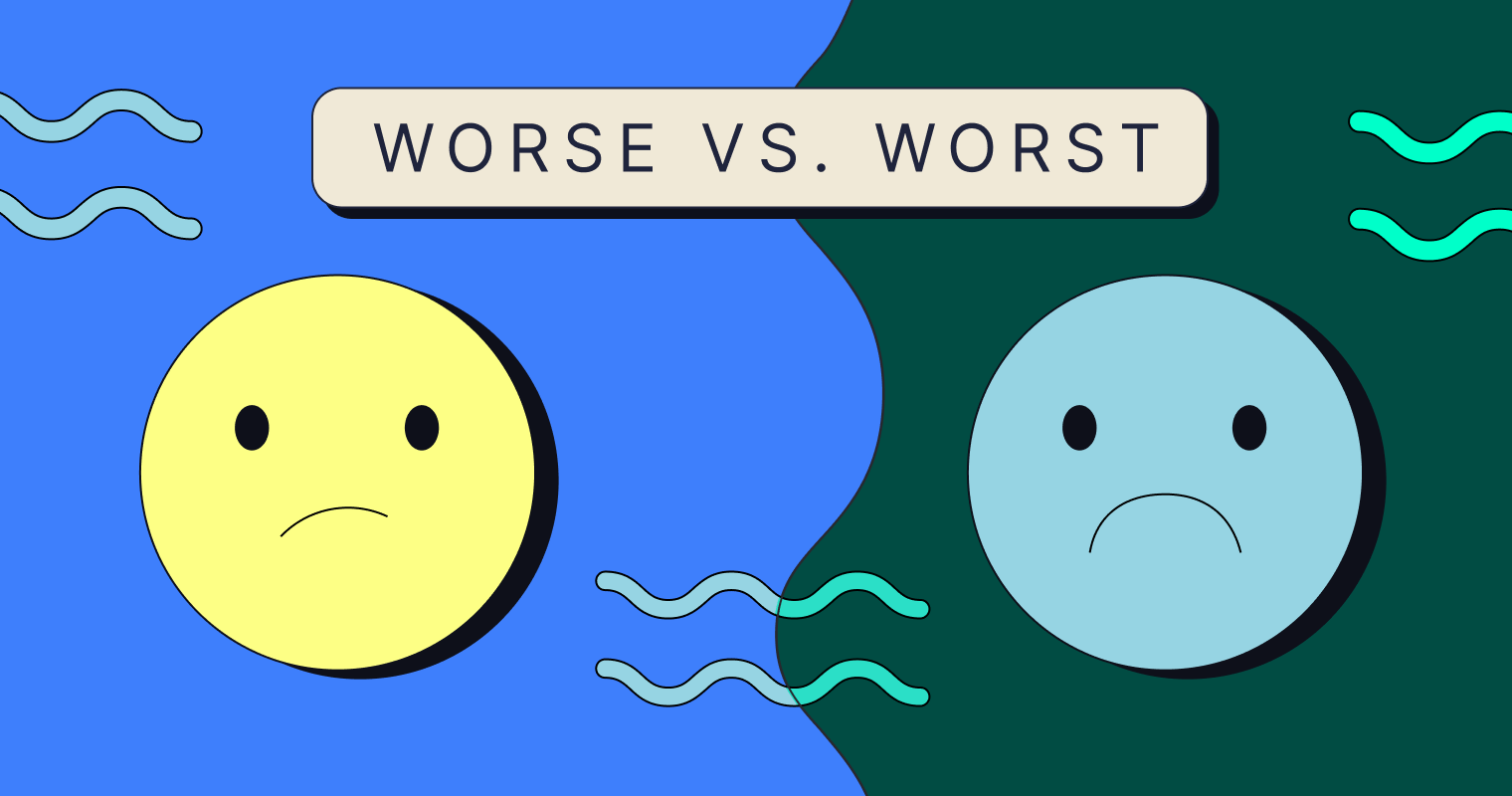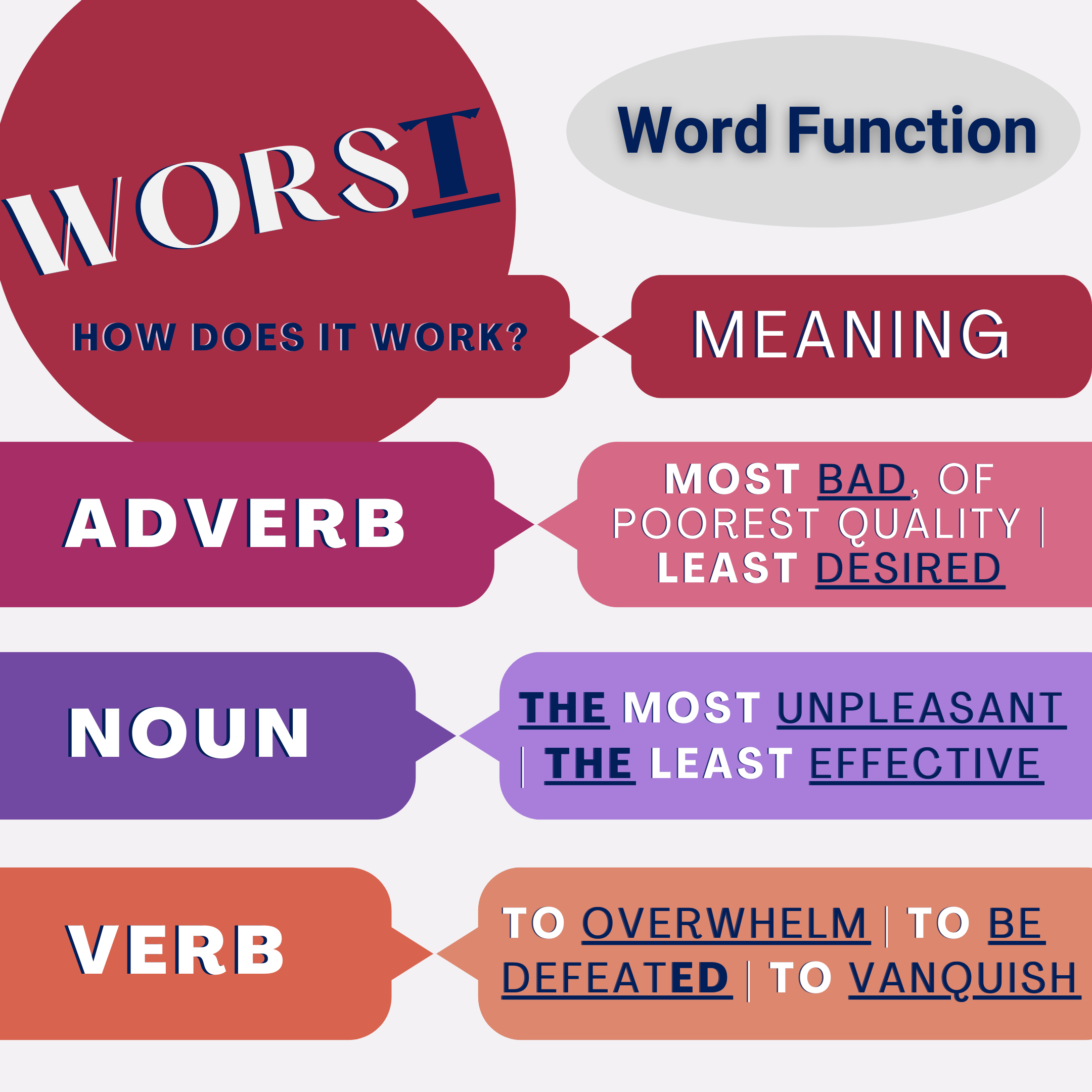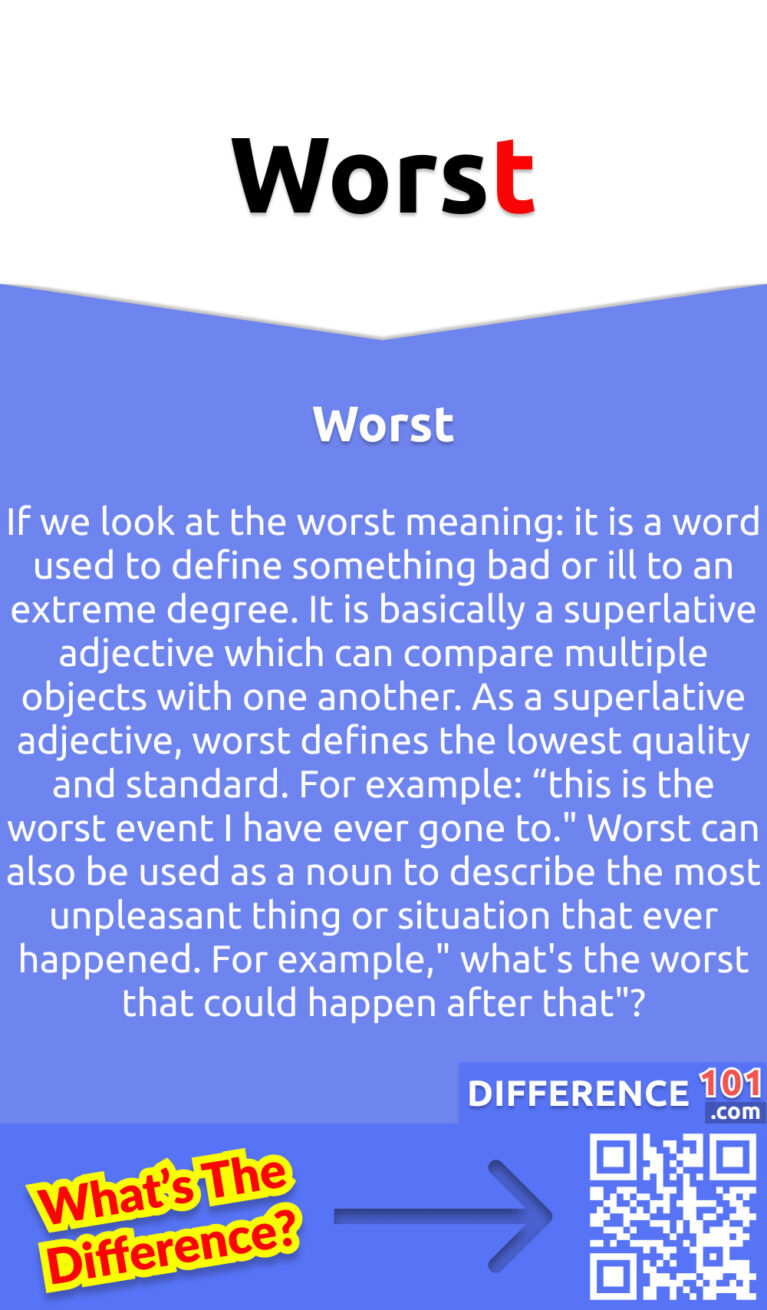Unpacking The Idea Of Florida's Worst Town: What To Know
Thinking about Florida often brings to mind sunny beaches, exciting theme parks, and a generally pleasant way of life. Yet, for some, the search for a perfect spot might also involve figuring out where to steer clear. When people wonder about the worst town in Florida, they are, in a way, asking about places that might just be the opposite of that sunny ideal. This curiosity, you know, comes from a natural desire to make good choices, whether for visiting or perhaps even considering a move.
It's interesting, really, to consider what makes a place earn such a strong label. The word "worst" itself carries a lot of weight, implying something that is, similarly to a very bad storm, truly unpleasant or difficult. As a matter of fact, it points to something of the lowest quality, or perhaps the most unfavorable among many options. People want to avoid disappointment, and that's a pretty understandable feeling, isn't it?
So, this article aims to explore what might lead someone to call a Florida town the "worst." We'll look at the different things that could make a place feel like it's at the very bottom of the list, rather like that awful pizza you remember, the one that was just the least good ever. It's about understanding the criteria, honestly, that shape such a strong opinion, and what that might mean for you, should you be curious.
- Trump Family Lists Oceanfront Palm Beach Mansion Across From Mar A Lago For 49 Million
- Billionaire Shopping Mall Developer Rick Caruso Lists Malibu Estate For 40 Million
Table of Contents
- Understanding "Worst": A Deeper Look
- Economic Struggles: When Opportunity Feels Scarce
- Safety Concerns: Feeling Less Secure
- Lack of Amenities and Infrastructure: Basic Needs and Comforts
- Environmental Factors: Nature's Challenges
- Community Vibe: The Feeling of a Place
- The Subjectivity of "Worst": It's All About Perspective
- People Also Ask
Understanding "Worst": A Deeper Look
When someone uses the term "worst town in Florida," they are usually describing a place that feels, in some way, the most undesirable or unpleasant. This isn't just a casual remark; it suggests a place of the lowest quality or standard when compared to others. The word "worst" is what we call the superlative form, meaning it's the very bottom of the barrel, so to speak. It's more than just "bad"; it's "most bad." This is important, as a matter of fact, because it sets a high bar for what we're discussing.
To call a town the "worst" implies it falls short in many significant ways. It might be seen as the most corrupt, or perhaps just very ill-suited for comfortable living. The term describes something that is of the lowest quality, degree, or standard among all the towns in a particular category. It really refers to the most unfavorable outcome or experience you could have in a place. So, when we talk about a "worst town," we're talking about a place that is perceived as being bad in the highest, greatest, or most extreme degree, you know, for its residents or visitors.
Economic Struggles: When Opportunity Feels Scarce
One major reason a town might get called the "worst" often comes down to its economic situation. A place with very few job opportunities or a struggling local economy can feel like it's of the lowest quality for those trying to make a living. It's a pretty big deal, actually, when people can't find work or earn enough to support their families. This can really make a town feel like it's failing its people, leading to a generally unpleasant atmosphere.
- Roy Haynes Net Worth
- Polands Newest Billionaire Cashes In On Pandemic Fueled E Commerce Frenzy To Join The Three Comma Club
Job Prospects and Local Income
A town where good jobs are hard to come by, or where wages are very low, can create a sense of hopelessness. People might struggle to pay their bills, which, you know, leads to a lot of stress. When there aren't many opportunities for career growth, or if the main industries are fading away, residents can feel stuck. This kind of economic hardship contributes a lot to a town being seen as "most undesirable" for building a life.
For instance, if a town was built around a single industry that has since left, the ripple effect can be pretty devastating. Many people might find themselves without work, and new businesses might be hesitant to open there. This creates a difficult cycle, honestly, where economic activity just isn't there. It’s a situation where the town, in some respects, offers the least favorable outcome for those seeking employment.
The Local Business Climate
Beyond individual jobs, the overall business climate plays a big role. If there are very few local shops, restaurants, or services, the town can feel quite empty and lacking. A vibrant business scene usually means more jobs, more tax revenue for public services, and more things for people to do. When this is missing, the town's quality of life can really suffer, making it feel, you know, quite poor.
A town where businesses struggle to open or stay afloat often shows deeper issues, like a lack of local support or perhaps too many regulations. This kind of environment can make a place seem rather unappealing to both new businesses and potential residents. It really contributes to the idea of a town being "of the lowest quality" when it comes to economic vitality, and that's a pretty significant factor.
Safety Concerns: Feeling Less Secure
Another strong reason a town might be labeled the "worst" is if its residents don't feel safe. A place with high crime rates or a general sense of unease can be truly unpleasant and difficult to live in. People need to feel secure in their homes and when they are out and about. When this basic need isn't met, the town's standing can drop dramatically, actually, in public opinion.
Understanding Crime Rates
High rates of crime, whether property crimes or more serious offenses, can make a town feel very dangerous. This creates a constant worry for families and individuals. When crime is a frequent topic, it can cast a long shadow over the entire community. It's a situation where the town is perceived as "most corrupt" or "ill" in terms of its social order, which, you know, is a big concern for anyone.
Even if you don't personally experience a crime, the knowledge that it happens frequently can change how you live your daily life. People might avoid certain areas, or they might feel hesitant to let their children play outside. This erosion of trust and freedom makes a town feel less welcoming and more difficult to navigate, pretty much making it a less desirable place to be.
Community Well-being and Support
Beyond just numbers, the overall well-being of the community matters. Are there programs to help people, or is there a strong sense of neighbors looking out for each other? A lack of community support can make a town feel isolated and less resilient in the face of challenges. This absence of social fabric can make a place feel, honestly, quite bad.
When a community doesn't have strong bonds or support systems, problems can fester. People might feel like they are on their own, which, you know, adds to the feeling of a town being "unpleasant" or "severe" in its social environment. It's about more than just law enforcement; it's about how people interact and support each other, or don't, as the case may be.
Lack of Amenities and Infrastructure: Basic Needs and Comforts
A town might also be considered the "worst" if it lacks essential services and modern conveniences. This refers to a place that is "of the lowest quality" when it comes to things like good roads, reliable utilities, or access to important facilities. People expect a certain level of infrastructure to support their daily lives, and when it's missing, it can make living there truly difficult, you know.
Healthcare Access and Quality
Access to quality healthcare is a very basic need. If a town has no hospitals, very few doctors, or limited emergency services, it can be a huge concern for residents, especially families with young children or older adults. This lack of critical services can make a town feel quite precarious, especially during a health crisis. It's a situation where the town, in some respects, provides the least favorable outcome for health security.
Imagine needing urgent care and having to drive a very long distance to get it. This kind of situation can create a lot of anxiety and make a town feel quite isolated. It really impacts the quality of life, honestly, when you can't easily get the medical attention you might need. This factor alone can make a town seem like a "most undesirable" place to settle down.
Education Options for Families
For families, the quality of local schools is a pretty big deal. If the schools are struggling, or if there are very few educational opportunities for children, parents might look elsewhere. A town with poor educational infrastructure can be seen as "of the lowest quality" for raising a family. It's about giving children a good start, and when that's not possible, the town suffers.
Good schools don't just benefit students; they also attract new families and contribute to a town's overall vitality. When educational options are limited, or if the schools have a bad reputation, it can deter people from moving there. This really impacts the town's future, and so, you know, it becomes a significant mark against it.
Recreational Activities and Green Spaces
Life isn't just about work and necessities; people also need places to relax and enjoy themselves. If a town has very few parks, community centers, or entertainment options, it can feel quite dull. A lack of recreational opportunities can make a place seem "unpleasant" or simply boring. It's about having things to do, and a town without them can feel pretty empty.
Green spaces, like parks and walking trails, are important for physical and mental well-being. If a town lacks these, or if they are poorly maintained, it impacts the quality of life for everyone. This absence of leisure activities and natural beauty can make a town feel, frankly, less appealing, contributing to the idea of it being "least favorable" for a balanced lifestyle.
Environmental Factors: Nature's Challenges
Sometimes, what makes a town feel "worst" isn't about human failings but about its environment. Florida, you know, faces unique natural challenges, and some towns might be more vulnerable than others. This can make a place "difficult" or "severe" to live in due to ongoing natural threats or environmental issues. It's a rather serious consideration for many people.
Vulnerability to Natural Disasters
Florida is known for its hurricanes and tropical storms. A town that is particularly prone to severe flooding, or that experiences frequent, damaging storms, can be seen as "most difficult" to live in. The constant threat of natural disaster, and the need for frequent recovery efforts, can be incredibly stressful for residents. As a matter of fact, the definition of "worst" can involve a "severe" storm, which really highlights this point.
The financial burden of repairs, the disruption to daily life, and the emotional toll of repeated natural events can wear people down. This vulnerability can make a town feel less stable and more risky for long-term living. It's a situation where the town, arguably, offers the least favorable outcome when it comes to environmental safety and peace of mind.
Pollution Issues and Public Health
Environmental pollution, whether from industrial sources, poor waste management, or water contamination, can seriously impact public health. A town with significant pollution problems might be considered "ill" or "bad" for its residents' well-being. This kind of issue can lead to health problems and a general decline in the quality of life. It's a pretty serious concern, you know, for anyone considering a move.
Concerns about air quality, safe drinking water, or contaminated land can make a town feel unsafe, even if there isn't immediate danger. People want to live in a place where they can breathe clean air and drink clean water without worry. When these basic environmental standards are not met, the town's overall appeal can drop significantly, making it seem "most undesirable." You can learn more about environmental health concerns at the Environmental Protection Agency's website.
Community Vibe: The Feeling of a Place
Beyond the tangible aspects, the overall feeling or "vibe" of a town can also contribute to it being labeled the "worst." This is about the subjective experience of living there, how people interact, and the general atmosphere. A town might be seen as "unpleasant" or "of the lowest quality" if its community spirit is low or if there are significant social challenges. It's a rather subtle but powerful factor, honestly.
Social Cohesion and Local Spirit
A strong sense of community, where people feel connected and supported, is very important for a town's health. If a town lacks social cohesion, or if there's a lot of division and conflict, it can feel quite unwelcoming. This absence of a friendly, cooperative spirit can make a place feel "bad" or even "ill" in terms of its social fabric. People generally want to feel like they belong, you know.
When there are few community events, or if residents don't seem to interact much, the town can feel isolated and cold. This can lead to feelings of loneliness and a general lack of enjoyment in daily life. A town that struggles with its collective spirit often finds itself at the "least favorable" end of the spectrum for social well-being.
Public Services and Local Governance
The effectiveness of local government and public services also plays a part. If public services like trash collection, road maintenance, or emergency response are consistently poor, it can make daily life very difficult. A town where the local leadership seems ineffective or unresponsive might be seen as "most corrupt" or simply "bad" in its management. This can really impact residents' trust, too, it's almost a given.
When residents feel their concerns are ignored, or if basic services are not provided reliably, it creates frustration. This lack of proper governance can contribute to a town feeling neglected and, frankly, quite unpleasant to live in. It's about the town's ability to function smoothly and meet the basic needs of its people, and when it falls short, it's pretty noticeable.
The Subjectivity of "Worst": It's All About Perspective
It's really important to remember that what one person considers the "worst" town, another might find perfectly acceptable, or even charming. The idea of "worst" is, in fact, quite subjective. It refers to the "most unfavorable or undesirable" outcome, but what makes something unfavorable depends a lot on individual priorities and experiences. So, a town that struggles economically might be perfect for someone seeking very affordable living, for instance.
Someone looking for a quiet, secluded life might find a town with very few amenities to be ideal, while another person would find it incredibly boring. Similarly, a town with a high cost of living might be "worst" for someone on a budget, but "best" for someone seeking luxury. It just goes to show, you know, that personal needs and wants shape these perceptions quite a bit. At worst, a town might not suit you, but it could be perfect for someone else.
Ultimately, when people talk about the "worst town in Florida," they are often expressing a personal opinion based on a combination of factors that matter most to them. It’s a comparison, really, where one place stands out as being "least good" in their eyes. Understanding these different aspects helps us see that there isn't one single "worst" place for everyone, but rather a collection of challenges that can make a town difficult for many, or perhaps just for some. It's all about what you're looking for, honestly, and what you're willing to put up with.
People Also Ask
What criteria make a Florida town "bad"?
A Florida town might be considered "bad" based on several factors, including economic struggles like high unemployment or low income levels, safety concerns like elevated crime rates, and a general lack of important amenities such as good healthcare or educational options. Environmental issues, like vulnerability to natural disasters or pollution, also play a part. Basically, it's about a town being perceived as "of the lowest quality" across these different areas, you know, for living.
Are there truly "worst" towns, or is it subjective?
The idea of a "worst" town is largely subjective, actually. What one person finds undesirable, another might not mind, or might even prefer. The term "worst" describes something that is "most unfavorable or undesirable" to an individual. For example, a town with limited job prospects might be considered "worst" by someone seeking career growth, but it could be perfect for a retiree looking for peace and quiet. So, it really depends on your personal needs and priorities, you know, as a matter of fact.
How do I find out if a Florida town is a good fit for me?
To find out if a Florida town is a good fit for you, it's a good idea to research its economy, looking at job markets and cost of living. You should also check local crime statistics and the availability of important services like hospitals and schools. Visiting the town, if possible, can give you a real feel for its community spirit and daily life. You know, it's about aligning the town's characteristics with what you personally value and need, to be honest.

301 Moved Permanently

worse vs worst what is the difference?

Worse vs. Worst: 7 Key Differences, Pros & Cons, Examples | Difference 101